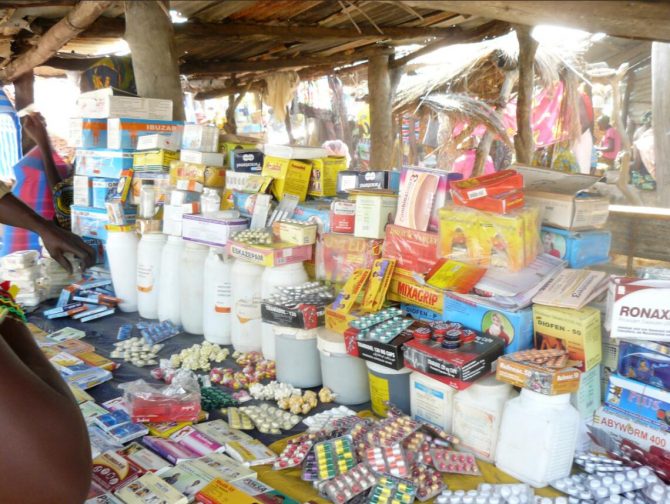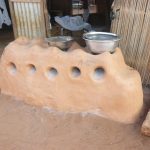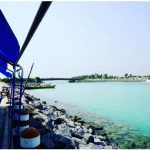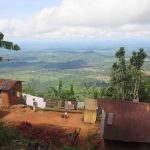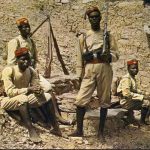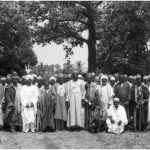Fewer official deaths than expected
Six months after the outbreak of the Covid-19 pandemic in Togo, there are 41 deaths according to official information (as of September 20, 2020). The government provides information on the current spread of the pandemic on a specially set up website. The numbers do not correspond to the initially suspected horror scenarios in which it was expected that the virus would spread rapidly across the country due to the poor hygienic conditions and collapse the already poorly equipped health system. In other African countries, too, the pandemic is going less well than feared – at least in terms of official death rates.
It is unclear how high the actual number of unreported Covid-19 cases is, considering the comparatively low test capacities. The young average age of the population probably also plays a role. In young people, a Covid-19 infection is often asymptomatic. Only 3% of the Togolese population are older than 65 years. The risk group for severe courses and deaths is therefore significantly smaller than in Europe, America and Asia.
On September 10, 2020, the Coordinating Committee of the Covid-19 Pandemic announced that there would be special Covid-19 insurance for employees in the health system. The reason for this is that there are already 80 confirmed cases in which health workers have infected patients.
Poverty, crime and autocracy are increasing
Even if there are fewer Covid-19 deaths than expected, it is clear that the measures to combat the pandemic are having catastrophic effects on the African population. In Togo, too, the economic downturn, especially in the service sector, which is so important, has made the situation of many people significantly worse than before the pandemic. Poverty, hunger and crime are increasing. Aid organization Oxfam warned in July that the pandemic measures could result in 12,000 starvation deaths around the globe by the end of the year.
The state of emergency called by the government severely restricts democratic room for maneuver. In recent months, people have been killed on military patrols who did not comply with conditions such as the night curfew. It is becoming increasingly normal for security forces to take violent and authoritarian action against the population. On September 15, 2020, the health emergency was extended to March 2021 for the third time. Representatives from the opposition and civil society criticize the fact that Prime Minister Faure Gnassingbé is using the emergency ordinance so that he can only govern by decree.
Houses of worship are gradually opening
Since July 17th, believers of different religions have been able to express their faith again in public. Religious celebrations were banned in mid-March in order to contain the spread of Covid-19. After four months of closure, some places of worship were partially reopened in consultation with the national Covid-19 coordinating committee and the leaders of the various religious communities. Celebrations and other spiritual activities take place under the supervision of law enforcement and security officers deployed in places of worship, as well as the supervision of community officials.
However, where the epidemic is on the rise again, further restrictions will be enforced. After a worrying increase in the number of new infections with the coronavirus, especially in the north, the competent authorities decided to close the cities of Sokodé (center), Tchamba (center-east) and Adjengre (center) from August 25. In the prefectures of Tchaoudjo, Tchamba and Sotouboua, which are also in the center of the country, a curfew has been introduced from 6:00 p.m. to 5:00 a.m.
Togo is testing a cure for Covid-19
According to payhelpcenter, Togolese researchers, from both modern and traditional medicine, want to develop endogenous solutions for dealing with Covid-19. In the middle of the year, the Faculty of Health Sciences at the University of Lomé called on all experts in the country to develop recipes that could help the organism to defend itself against a virus. About 100 products were suggested and tested by the university. Four of them have proven helpful and have also been tested on patients since September. The results of the studies and analyzes will be presented at the end of 2020. If they are conclusive, an introduction of this treatment could start from January 2021.
In view of Covid-19 and other epidemics, the World Health Organization (WHO) wants to promote research in Africa in the field of natural medicinal products. The epidemic started the debate over traditional medicine revived in Africa. Madagascar has supplied batches of a drink based on Artemisia, a plant with recognized therapeutic properties against malaria, to several African countries. According to President Andry Rajoelina, the product is also effective against Covid-19. Phase 3 clinical trials of herbal medicines for Covid-19 were approved by the WHO in September. To do this, they work with the African Center for Disease Control and Prevention and the Social Affairs Commission of the African Union. They are grouped in a Regional Expert Committee on Traditional Medicine for Covid-19. With the help of these studies, the safety and effectiveness of new medical devices can be reliably assessed. The WHO Africa Representative, Dr. Prosper Tumusiime.
